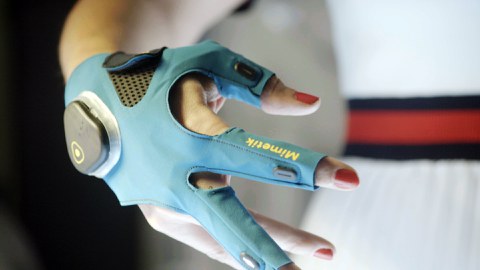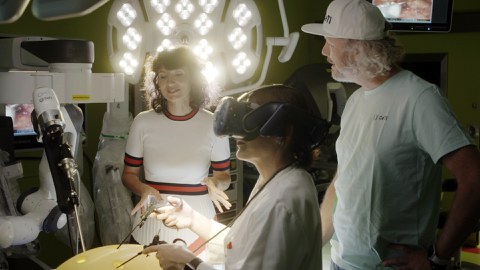Prof. Stefanie Speidel
© Camera: Avanga, post production: Janett Hanitzsch
Prof. Stefanie Speidel is Professor for Translational Surgical Oncology at the National Center for Tumor Diseases Dresden (NCT/UCC). Dresden has been one of now six NCT sites since 2015. The shared goal of all NCT sites is to advance state-of-the-art clinical cancer research in Germany in the long term and thereby improve treatment outcomes and quality of life for cancer patients. One of their focuses is on innovative clinical studies.
With a research focus area in robot-assisted surgery, Prof. Speidel bridges the gap between medicine, computer science and engineering. The computer scientist researches intelligent assistive technologies for the operating theater. These are designed to help surgeons perform minimally invasive procedures safely and efficiently, and to warn them of potential complications. The operations are navigated via endoscopic video images. Together with her team, Prof. Speidel is working on a navigation system that superimposes additional information on the two-dimensional video images – such as the three-dimensional representation of areas to be operated on or blood vessels that must not be injured. It is especially difficult to develop a navigation system of this type for soft tissue, such as those in the abdominal area, as breathing, heartbeats and contact with medical instruments can cause the position and shape of these tissues and organs to change constantly. Researchers must analyze and reproduce these changes in real time.
Prof. Spiedel combines robotics and artificial intelligence in the development of assistive technology, which is why she works closely with the Centre for Tactile Internet with Human-in-the-Loop (CeTI), for which she is also a Speaker. CeTI is a Cluster of Excellence at TU Dresden, the objective of which is to improve the interaction between humans and machines.
Three questions for Prof. Stefanie Speidel
What does excellence mean to you?
For me, excellent research means groundbreaking research which is reproducible, transparent and ethical and which contributes new findings to solving societal problems.
What makes Dresden special as the home of your research?
The Dresden Spirit, which is especially strong here, is special for sure. There is this irrepressible will to work together and to collaborate – beyond disciplinary boundaries and institutions, in order to conduct joint research on interdisciplinary topics. The motivation of students who assist in research work and are always eager to help is also worth highlighting.
How would you describe collaboration beyond disciplinary boundaries?
Collaboration between colleagues is friendly, cooperative, extremely dynamic, dedicated and open. I find it really fun and motivating to work together with these various disciplines and to conduct interdisciplinary research. This also pushes me out of my comfort zone a little and enables me to gain another perspective. In the end, it’s always a win-win situation; otherwise the motivation for interdisciplinary research wouldn't be there.


